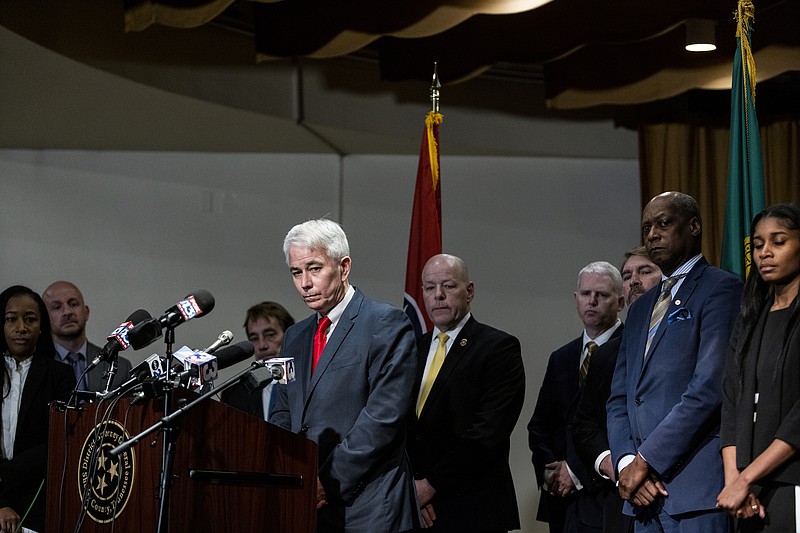American communities need robust law enforcement, and the vast majority of police officers are public servants performing dangerous work with dedication. The footage of Memphis, Tennessee, police officers killing Tyre Nichols in early January, however, is all the more unbearable because Americans have seen the likes of it so many times before. Too many Americans today live in fear that they may suffer abuse or excessive force at the hands of police officers who are sworn to protect them.
Police officers killed 1,096 people in the United States last year, according to The Washington Post, which painstakingly tracks the death toll because the government does not keep a complete count. That was the most such deaths in any year since 2015. The victims, including Nichols, are disproportionately young Black men.
To keep Americans safer, the federal government and state and local governments need to match continued investments in policing with reforms that make law enforcement agencies as a whole -- as well as individual officers -- more accountable to the communities that they serve.
The single most important change Congress can make is to write out of existence the misbegotten legal doctrine of "qualified immunity," which makes it unreasonably difficult to hold officers or agencies financially liable for misconduct.
States also need to change their laws. Colorado in 2020 became the first state to end qualified immunity. Connecticut, New Mexico and New York City have since passed laws limiting the use of the shield.
Other changes are necessary. Cities need to establish clear and consistent procedures for the independent review of the use of force by law enforcement officers. Cities need to rewrite their relationships with police unions by treating basic accountability measures as nonnegotiable. Cities should not see stricter conduct standards as antithetical to effective policing. Reform and investment can be complementary.
The federal government can help by promulgating best practices, such as training in de-escalation techniques, and providing funding to support implementation. Alongside that carrot, the Department of Justice can also wield a stick by pursuing consent decrees against recalcitrant departments.
A lack of accountability is among the factors that make police violence significantly more common in the United States than in other wealthy democracies. The ubiquity of guns means that American police officers face greater danger, and are trained to use violence to protect themselves. The tattered safety net for people with mental illnesses produces frequent interactions between police officers and people who really need doctors. Law enforcement agencies have compounded these difficulties by investing in military equipment and by treating policing as a form of conflict, rather than investing in ways to improve the effectiveness of policing. And racism continues to warp the way that law enforcement interacts with the Black community, especially young Black men.
The Memphis Police Deparetment fired six officers in the wake of Nichols' death, and prosecutors have charged five of them with second-degree murder -- an important measure of accountability.
It is not enough. Memphis, like every other American city, should acknowledge and address the systemic failures that allowed Nichols death to happen.
Americans continue to die at the hands of those charged with protecting their lives and liberty. Even one unnecessary death would be reason enough for reform, but Americans should not have to wait for more reasons. The rule of law is essential to our democracy, and the rule of law depends on public faith in law enforcement as an institution. It is up to those who lead law enforcement agencies, and the elected officials who choose them, to strengthen that institution.
The New York Times
